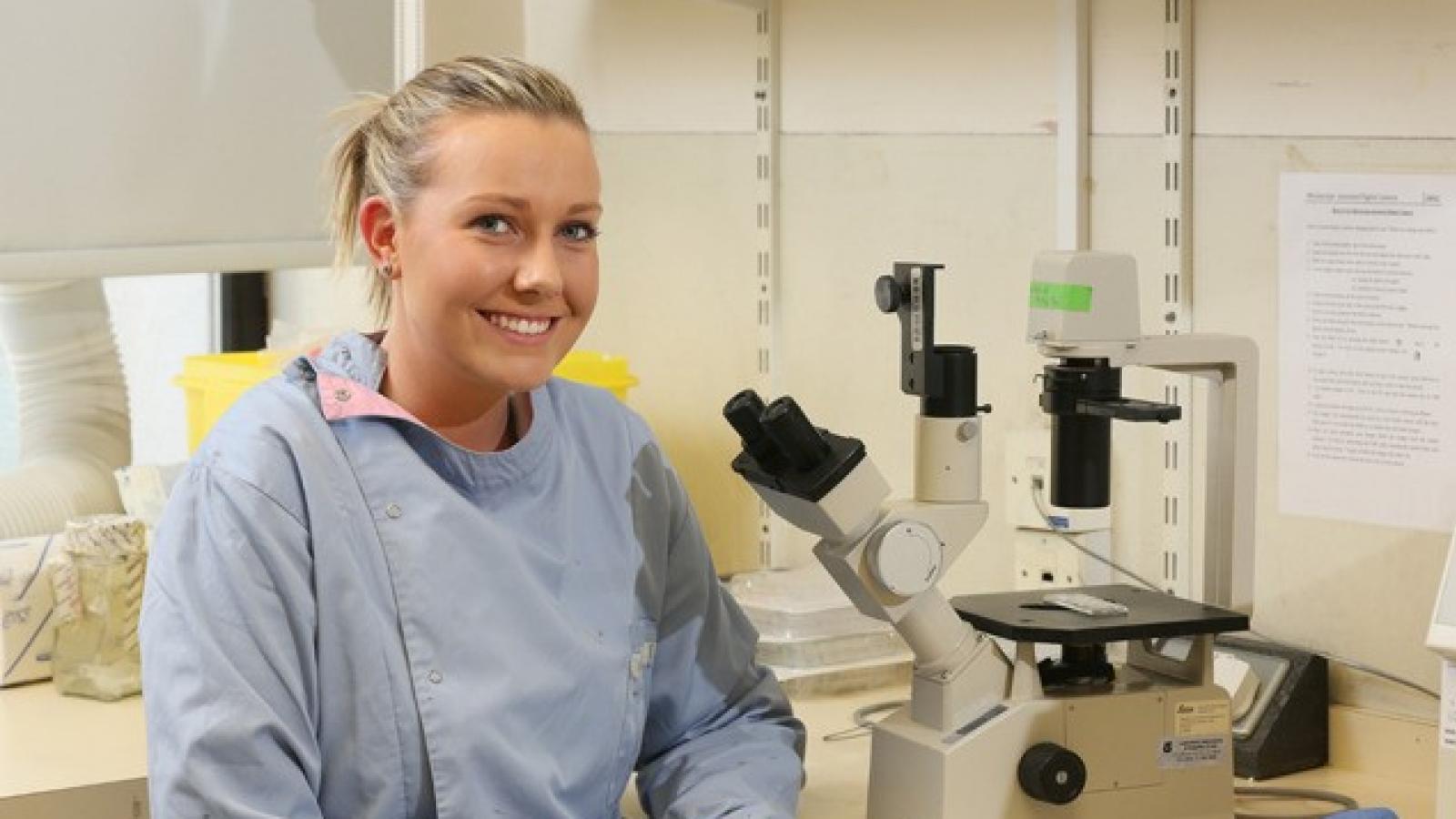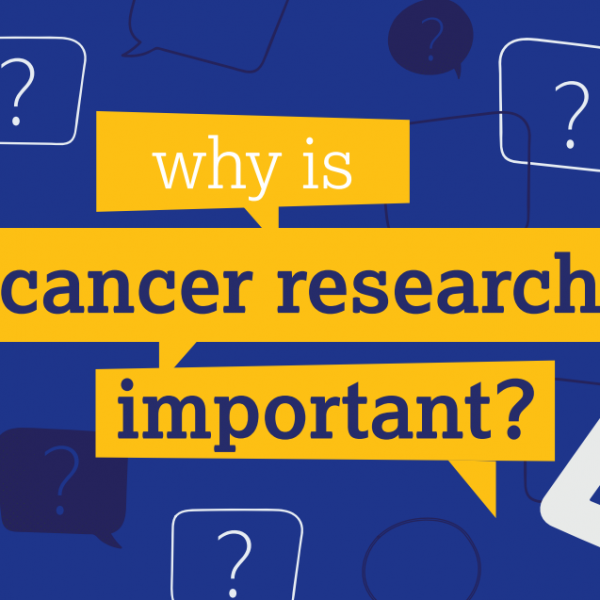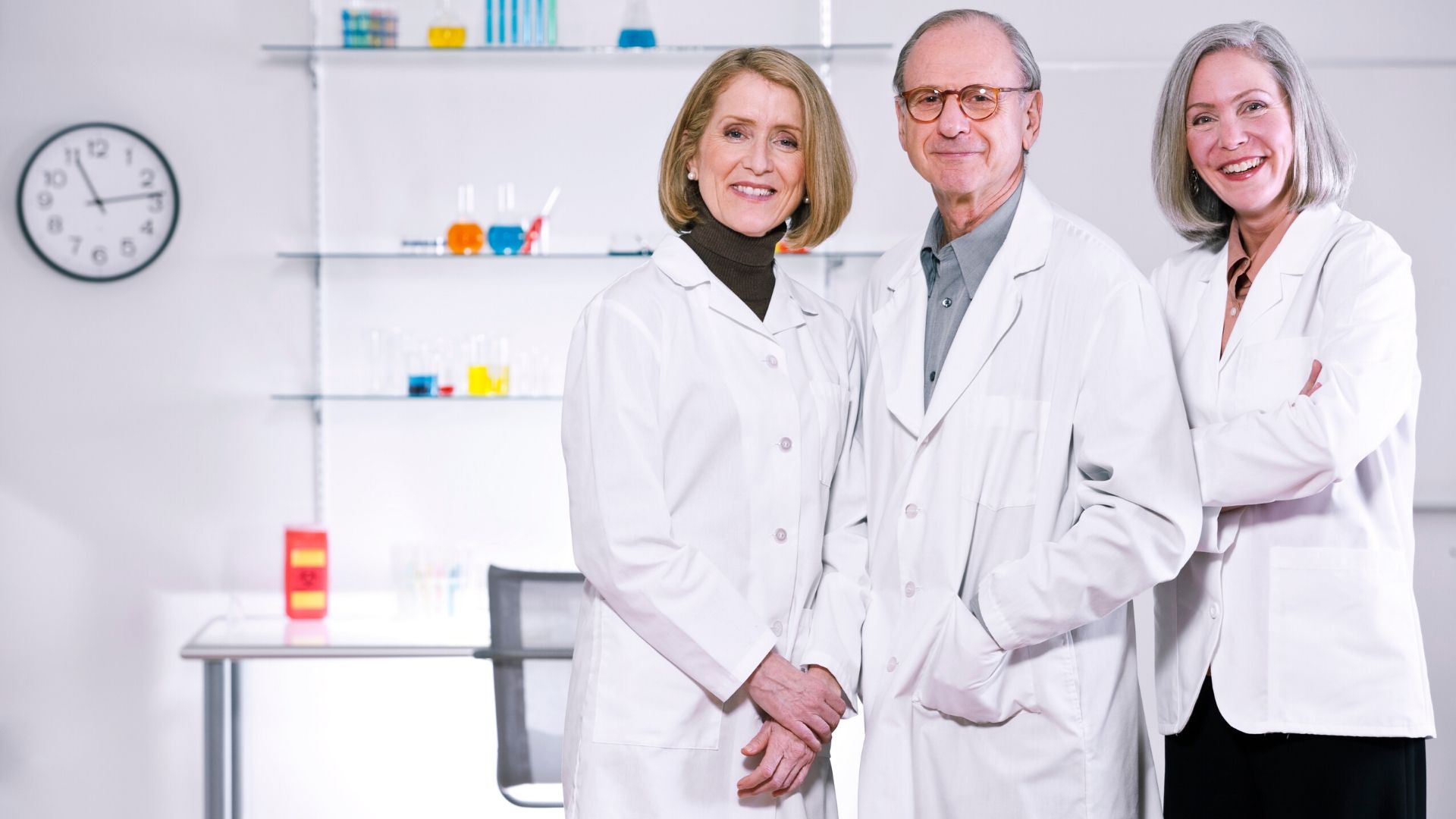About cancer research

Researchers around the world are in a race to find better ways to prevent, detect and treat cancer and ensure that survivors live longer, better lives. But they know that this race is a marathon, not a sprint. Cancer research won’t stop until cancer does.
What is cancer?
The human body consists of trillions of cells, all of which are growing, dividing and dying every day. Our bodies keep normal cells under very strict control. They are told when to grow, when to divide and when to die.
Cells become cancer cells when they get out of control. Cancer cells grow and divide more quickly than normal cells. They also don’t die like normal cells.
With more than 200 different cell types in our bodies and so many ways in which they can change, there are thousands of different cancers.
What is cancer research?
Cancer research can span from cancer prevention to laboratory research that examines new or improved ways to detect cancer or developing new drugs to fight cancer , from clinical trials to quality-of-life research for survivors.
Through the public's generous support, the Irish Cancer Society funds across the range of research areas in line with our mission to ensure fewer people get cancer and those that do have better outcomes.
With the help of all our supporters we have played a significant role in several breakthroughs in cancer research since 1963. We fund scholarships, fellowships, projects and programmes. Our research has led to hundreds of discoveries. Each of these new findings have been published in international peer reviewed journals, making this knowledge available to researchers worldwide.
While much of our cancer research will benefit the next generation of cancer patients, research is also extremely important for cancer patients being treated in Ireland today. Studies have shown that cancer patients treated at research-intensive hospitals have better outcomes than those treated in hospitals with little or no research activity.
Our vision is that cancer research will be at the heart of cancer care. This will ensure that patients diagnosed with cancer in Ireland will have access to the most cutting edge treatments and the best possible care.
Why do research?
Data from the National Cancer Registry of Ireland, coupled with a growing population, means that this year around 40,000 people in Ireland are expected to be diagnosed with cancer. More people are getting cancer in Ireland and worldwide. It is expected that the number of cancer cases in Ireland will double by 2040.
Cancer research is crucial to improve the prevention, detection and treatment of these cancers, and ensure that survivors live longer, better quality lives. Research also helps identify the causes of cancer and is pointing the way to improved methods of diagnosis and treatment.
Research is also important to many patients as taking part in research studies and trials allows them to contribute to improvements for the next generation.
Decades ago, most invasive cancers were fatal. For example, until the 1960s almost all children diagnosed with leukemia and most men diagnosed with testicular cancer died from their illness, today almost all of these cancers are cured by treatments developed through research. However, we still desperately need improvements in many aspects of cancer. For example, the outcome for some treatments such as pancreatic and ovarian cancer lags far behind that of other forms of the disease. We also need to find ways that treatment can have less consequences for cancer patients and their loved ones.
Cancer researchers in Ireland continue a proud tradition of contributing to global improvements in cancer outcome. For example, researchers in Ireland developed the first widely used radiation-based treatment for cancer – the so-called “Dublin method”, in the early 20th century.
Cancer research areas
Basic laboratory research
So much of what we know about cancer comes from the lab. Basic research is the foundation on which our understanding of cancer is set. It involves unravelling how normal cells in the body work, and finding out how cancer cells differ from normal cells.
Basic research can involve the study of organisms that are less complex than humans as well as models of cancer such as cells that once came from a tumour that can be grown in the laboratory.
Translational research
After extensive research in the lab to improve our understanding of cancer we can then begin to translate these findings into potential patient-focussed treatments.
For example, if a researcher discovers a characteristic which they believe changes a normal cell into a cancer cell, they can use translational research to try and develop a drug to stop this characteristic from happening.
In modern cancer research this is often the point where new treatments targeted at specific cancers are developed and refined through testing on cells, tissue, or other patient samples.
Clinical trials
Once researchers are happy that they have developed a treatment that could potentially have an effect on cancer cells they need to carry out a clinical trial.
Clinical trials are medical research studies with individuals to test whether different treatments are safe and how well they work.
This is the stage where the general public gets an opportunity to become part of the research process.
Nursing, social sciences and allied health research
Some important areas of research concerns how people actually live with and beyond cancer. This area of research is often called survivorship, but encompasses a multitude of different disciplines, such as social science, nursing, psychology, occupational therapy, physiotherapy, nutrition and diet, speech and language therapy, and many more.
Researchers and clinical professionals in this area are interested in patient-centred and patient-driven research questions, such as: “Does exercise before surgery improve outcomes after surgery?” or “Which psychological intervention is the most effective for people experiencing cancer?”.
References
* National Cancer Registry. Cancer projections for Ireland 2015 2040. National Cancer Registry. Cork, 2014



For more information
Phone
(01) 231 0500



